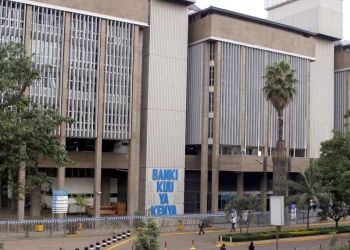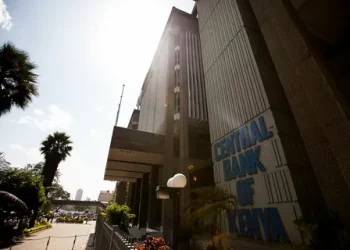The Supreme Court of Kenya has mandated that any increase in interest rates on loans and facilities by banks and financial institutions must receive prior approval from the Cabinet Secretary for Treasury.
In a decision delivered on June 28, 2024, the Supreme Court dismissed Stanbic Bank Kenya Limited’s appeal against Santowels Limited, reinforcing the necessity of regulatory oversight in banking practices. The court’s judgment emphasized that while banks and financial institutions may negotiate interest rates with their customers, these rates remain subject to government regulation to prevent exploitation and ensure financial stability.
Chief Justice Martha Koome, delivering the unanimous judgment, stated, “Interest rates on loans and facilities advanced by banks or financial institutions are subject to the regulatory process under Section 44 of the Banking Act. Such institutions are required to seek the approval of the Cabinet Secretary responsible for Finance prior to increasing interest rates.”
The ruling arises from Stanbic Bank’s challenge to a Court of Appeal decision which had affirmed that the bank’s discretion to vary interest rates was not absolute. The Supreme Court’s decision confirms that the discretionary power of banks to adjust interest rates must align with regulatory requirements, aimed at protecting consumers from exorbitant charges.
Legal representatives for Stanbic Bank, Senior Counsel Allen Gichuki and Franklin Otieno, argued that interest rates should be determined through mutual agreements between banks and customers, without necessitating government approval. However, the Supreme Court upheld the regulatory framework, aligning with the appellate court’s interpretation that banks cannot arbitrarily alter interest rates without oversight.
In the judgment, Chief Justice Koome referenced the Court of Appeal’s findings, particularly the Margaret Njeri case, that “even though a failure to comply with Section 44 does not render the contract void, financial institutions are prohibited from recovering interest or other charges that exceed the maximum permitted under the Act.”
The ruling clarifies the role of Section 44 of the Banking Act, ensuring that consumer protection remains a priority within the financial sector. The court highlighted that the relationship between banks and customers, while fundamentally contractual, is governed by statutory regulations to maintain fairness and transparency.
Anu Arora’s authoritative text, *Banking Law*, was cited to illustrate the complex interplay between contractual freedom and regulatory control in banking practices. Arora notes, “The banker and customer relationship is based on the principles of contract law, but that relationship is rarely reduced to a single written contract,” emphasizing the necessity of regulatory frameworks.
The Supreme Court’s decision is a significant affirmation of consumer rights and government oversight in Kenya’s banking sector. It mandates that all financial institutions adhere strictly to regulatory requirements, ensuring that interest rate adjustments are conducted transparently and fairly.
With this ruling, both the appellant’s and respondent’s appeals were dismissed, and each party was ordered to bear its own costs. The court also directed the refund of KES 6,000 deposited as security for costs to the appellant.


















